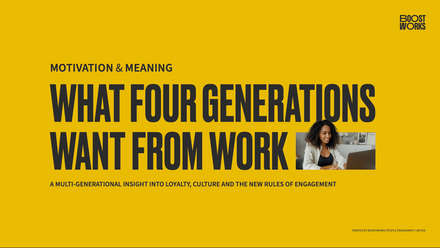The elements needed to create equitable flexibility in the workplace
Increasingly, organisation leaders are forcing corporate employees back to the office. This is despite a sea-change over the past few years in which more and more employees have been given greater flexibility around where, when and how they work.
In fact, the decision to reduce rather than increase workplace flexibility is a dangerous gamble as for many workers, it’s no longer regarded as a ‘nice to have’ but is now a ‘non-negotiable’ employment factor.
And flexibility is not only expected by traditional office-based workers. It’s increasingly being sought by all employees, including deskless workers, as part of a fair and equal culture.
This desire for ‘equitable flexibility’ needs to be understood and prioritised by all employers if a thriving workplace culture is to be nurtured.
The term workplace flexibility is often seen as covering just the worker’s location and the times they work, and as such it’s easy for flexible working requests to be dismissed out of hand when the employee’s role can’t be home-based or outside of normal working hours.
In fact, workplace flexibility shouldn’t be viewed in such a binary way, especially as most requests for greater flexibility encompass doctor or dentist appointments, working from home when a child is sick, or performing a task in a new way.
When flexibility is viewed more broadly, the ability to deliver it to everyone becomes increasingly possible.
Here are the five key elements of equitable flexibility:
1. Leadership support. Leaders support employees and show empathy and understanding for their needs.
2. Organisational support. Organisations empower leaders to give employees flexibility and provide the policies and tools to enable this.
3. Employee empowerment. Employees feel empowered to make decisions about their jobs.
4. Work choice. Employees have some discretion about what work they do and how they do it.
5. Time management. Employees have the autonomy to manage their workdays.
So, a worker may well understand that their job can’t be remote or flexi-time, but still want some control over how they perform their role.
With this in mind, the manager could work with the employee to find ways for them to have greater empowerment and autonomy, including agreed time-off for personal emergencies.
An equitable flexibility approach helps employees feel valued and equal to their colleagues.
And it provides the basis for an inclusive culture that leads to better outcomes.
When people are satisfied with their level of flexibility at work, they are 568% more likely to promote their organisation to others as a great place to work, and are 384% more likely to stay with their organisation another year.
These are compelling reasons for organisations to re-visit their flexible working initiatives, perhaps taking a less rigid and a more personalised approach that leads to a level of flexibility that works for everyone.
*Insights taken from O.C. Tanner’s 2024 Global Culture Report
Supplied by REBA Associate Member, O. C. Tanner
The worldwide leader in employee recognition solutions that help people thrive at work.








